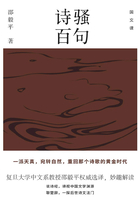The tokens of an extreme antiquity are discoverable in almostevery single feature of the Indian Village Communities. We haveso many independent reasons for suspecting that the infancy oflaw is distinguished by the prevalence of co-ownership by theintermixture of personal with proprietary rights, and by theconfusion of public with private duties, that we should bejustified in deducing many important conclusions from ourobservation of these proprietary brotherhoods, even if nosimilarly compounded societies could be detected in any otherpart of the world. It happens, however, that much earnestcuriosity has been very recently attracted to a similar set ofphenomena in those parts of Europe which have been most slightlyaffected by the feudal transformation of property, and which inmany important particulars have as close an affinity with theEastern as with the Western world. The researches of M. deHaxthausen, M. Tengoborski, and others, have shown us that theRussian villages are not fortuitous assemblages of men, nor arethey unions founded on contract; they are naturally organisedcommunities like those of India. It is true that these villagesare always in theory the patrimony of some noble proprietor, andthe peasants have within historical times been converted into thepredial, and to a great extent into the personal, serfs of theseignior. But the pressure of this superior ownership has nevercrushed the ancient organisation of the village, and it isprobable that the enactment of the Czar of Russia, who issupposed to have introduced serfdom, was really intended toprevent the peasants from abandoning that co-operation withoutwhich the old social order could not long be maintained. In theassumption of an agnatic connection between the villagers, in theblending of personal rights with privileges of ownership, and ina variety of spontaneous provisions for internal administration,the Russian Village appears to be a nearly exact repetition ofthe Indian Community; but there is one important difference whichwe note with the greatest interest. The co-owners of an Indianvillage, though their property is blended, have their rightsdistinct, and this separation of rights is complete and continuesindefinitely. The severance of rights is also theoreticallycomplete in a Russian village, but there it is only temporary.
After the expiration of a given, built not in all cases of thesame, period separate ownerships are extinguished, the land ofthe village is thrown into a mass, and then it is re-distributedamong the families composing the community, according to theirnumber. This repartition having been effected, the rights offamilies and of individuals are again allowed to branch out intovarious lines, which they continue to follow till another periodof division comes round. An even more curious variation from thistype of ownership occurs in some of those countries which longformed a debateable land between the Turkish empire and thepossessions of the House of Austria, In Servia, in Croatia, andthe Austrian Sclavonia, the villages are also brotherhoods ofpersons who are at once co-owners and kinsmen; but there theinternal arrangements of the community differ from those advertedto in the last two examples. The substance of the common propertyis in this case neither divided in practice nor considered intheory as divisible, but the entire land is cultivated by thecombineD labour of all the villagers, and the produce is annuallydistributed among the households, sometimes according to theirsupposed wants, sometimes according to rules which give toparticular persons a fixed share of the usufruct. All thesepractices are traced by the jurists of the East of Europe to aprinciple which is asserted to be found in the earliestSclavonian laws, the principle that the property of familiescannot be divided for a perpetuity.















